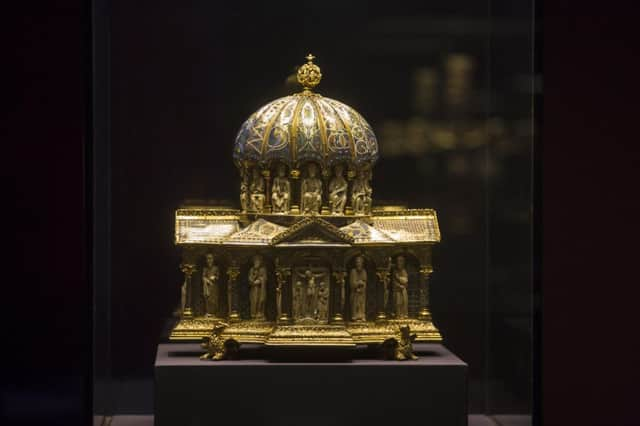Nazi-era art dealers’ heirs sue Germany


The suit, which attorneys said was filed in the US District Court in Washington DC, is the latest salvo in a long-running campaign by the heirs for return of the so-called Welfenschatz, or Guelph Treasure, which they claim their ancestors sold under Nazi pressure.
Originally collected over centuries by the Braunschweig Cathedral, the Welfenschatz includes some of the outstanding goldsmith works of the Middle Ages, among them ornate containers in the form of cathedrals used to store Christian relics. Many of the silver and gold pieces are decorated with jewels and pearls. Some are more than 800 years old.
Advertisement
Hide AdAdvertisement
Hide AdAttorney Nicholas O’Donnell said in an interview in Berlin that the suit asks the Washington court to declare an American and a British descendant of a consortium that owned the collection in 1935 – when it was sold to the German state of Prussia – the rightful owners today.
“Any transaction in 1935, where the sellers on the one side were Jews and the buyer on the other side was the Nazi state itself is by definition a void transaction,” Mr O’Donnell said.
The organisation that oversees Berlin’s museums, the Prussian Cultural Heritage Foundation, said the collectors were not forced to sell the pieces, arguing among other things that the collection was not even in Germany at the time of its sale.
Last year, a German government commission created to help resolve restitution claims evaluated both arguments and recommended that the collection stay in Germany. The commission wrote that after thoroughly investigating the sale process, it came to the conclusion that it was not a “forced sale due to persecution”.
The commission’s recommendations are not binding, but they are often accepted by parties in such disputes.
The foundation’s president, Herrmann Parzinger, said yesterday that he was “astonished” by the claimants’ decision to sue for the collection.
“The applicants’ legal representative had told me that the applicants would also accept and abide by the recommendation of the commission,” Mr Parzinger said.
“I am not aware of any new facts that might lead to a different evaluation of the case.
Advertisement
Hide AdAdvertisement
Hide Ad“While we believe that there is no jurisdiction over this claim in the United States, we are confident that any court ruling on the merits would reach the same conclusion that we and the advisory commission have reached.”
German culture minister Monika Gruetters said she noted the development with regret, calling the heirs’ claim “difficult to understand”.
However, the heirs’ attorney Mr O’Donnell called last year’s recommendation by the commission “flawed” and said his clients decided to file suit in Washington because they feel “US federal courts are the best suited to sort out these ownership rights” based on the Foreign Sovereign Immunities Act.
The plaintiffs are identified in the suit as Alan Philipp from London and Gerald Stiebel from Santa Fe, New Mexico.
There have been other cases in which heirs of looted art have sued Germany or German government museums in US courts. Two recent cases involving looted art were dismissed by the courts on sovereign immunity grounds.